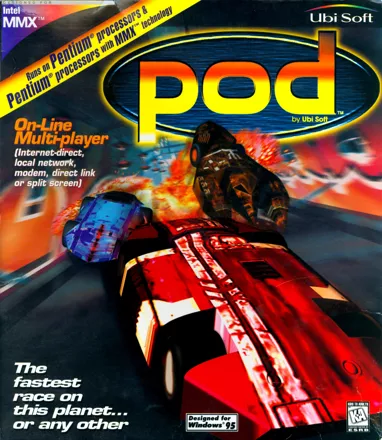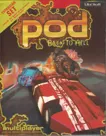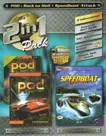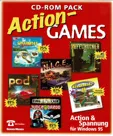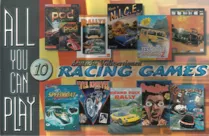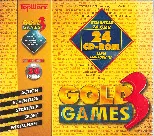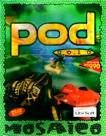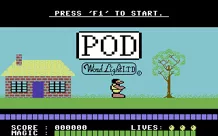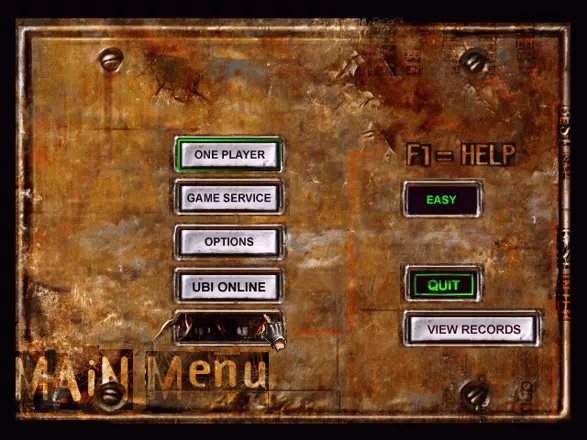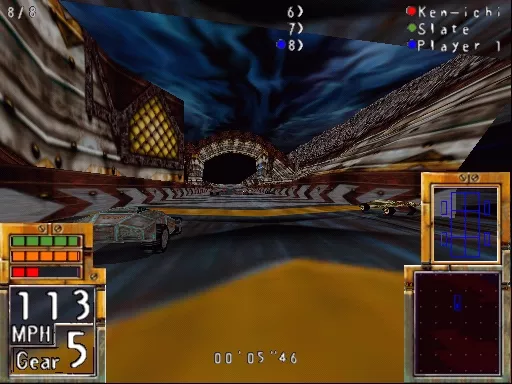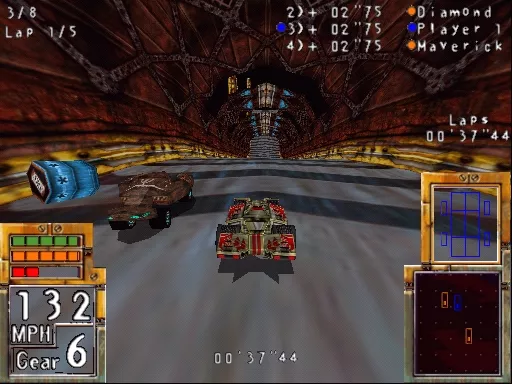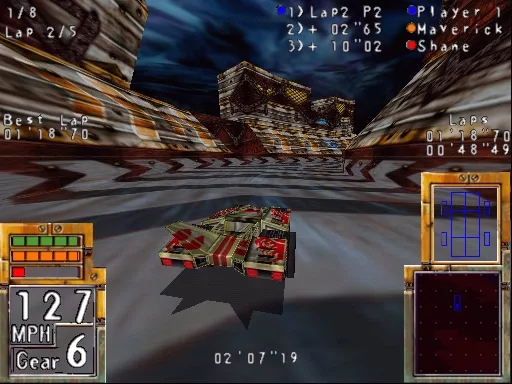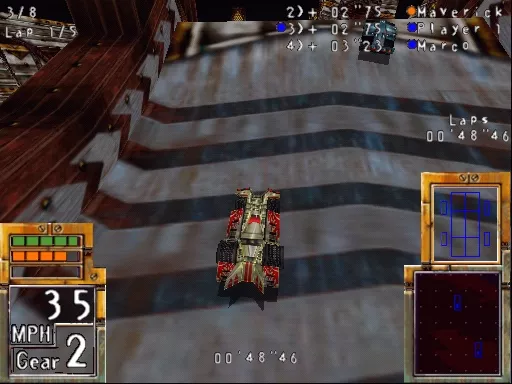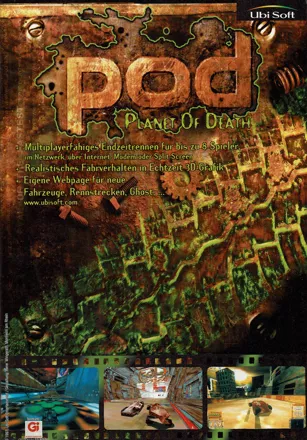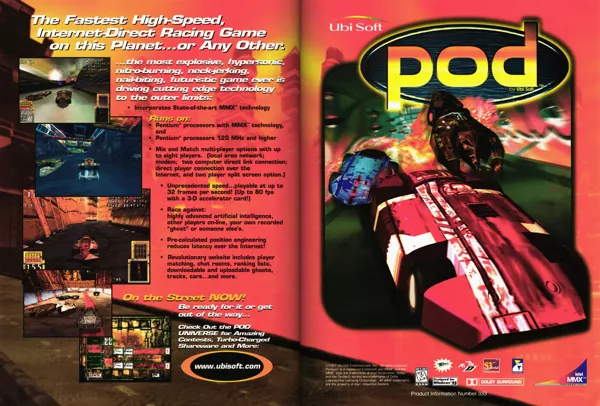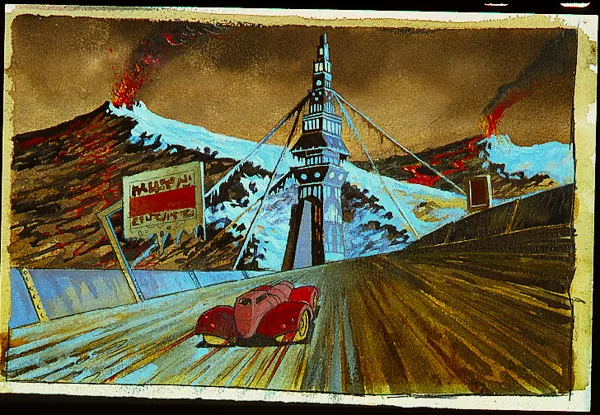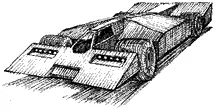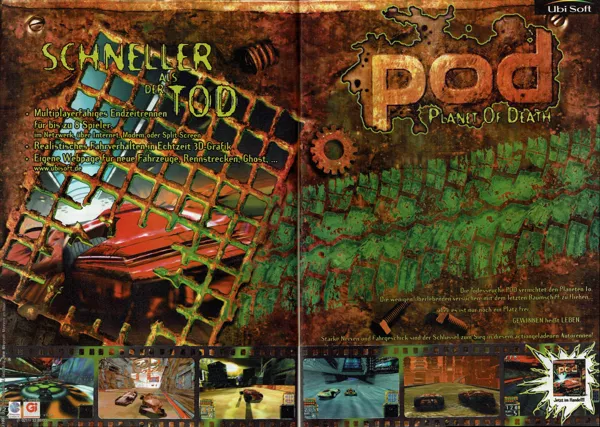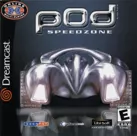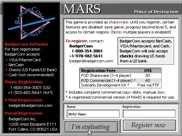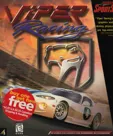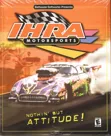POD
Description official descriptions
Your planet is doomed, and there is only one remaining seat on the spaceship leading citizens to safety. This will go to the winner of a sequences of races held within this futuristic world.
Viewed from above and behind the car, the game boasted a lot of technologically advanced features. Computer AI adjusted to your style of driving whilst in progress. It was the first game to use MMX technology, and the first to support 3D acceleration straight from the box. It also had a range of multiplayer options including networks and split-screen, and an online internet server to automatically match player.
Spellings
- 生死赛车 - Chinese spelling (simplified)
Groups +
Screenshots
Promos
Credits (Windows version)
153 People (141 developers, 12 thanks) · View all
| Project Manager | |
| Game Designers | |
| Project Lead Germany | |
| Art Designers | |
| 2D Artists | |
| 3D Artists | |
| [ full credits ] | |
Reviews
Critics
Average score: 79% (based on 25 ratings)
Players
Average score: 3.7 out of 5 (based on 37 ratings with 4 reviews)
Major milestone in the introduction of hardware-accelerated gaming
The Good
In POD everything is about speed (on the basic tracks you never had to brake).
For a long time this was the fastest and most beautiful game residing on my harddisk (writing about the Glide-Version; the game ran very well on my former P90 with Voodoo1 card; comparing the visual quality between the hardware accelerated version and the sw-version is like talking about two different games) and who cares about realism anyway (I hate simulations :-)).
It was the first racing game I have played where you could leave the main track and search for shortcuts.
The game featured superb multi-player support (including split screen). Maybe not extremly realistic, but predictable car handling (including different cars with different behaviour and the possibility to tweak with their settings) and futuristic to plain weird scenarios.
Everybody who has been repelled by the s/w-versions should give it a second look (preferably Glide and not Direct3D).
The Bad
Only one (although great; about 12 minutes) audio-track. There would have been enough space for more on the CD.
The Bottom Line
Visually stunning and very fast fun-racing game with great playability (even though simulation fans might hate it).
Windows · by Zzap (56) · 2000
The Good
Nothing. It was meant to demonstrate the abilities of the new (at the time) MMX instructions Intel came up with, and didn't do a very good job at it.
The Bad
Horrendously slow 3D engine (to the point that watching the demo Machines of Madness on a 486 seems fast-paced), blocky and unvaried graphics, bad controls and complete lack of decent music and sound effects contribute to the general damn-I'm-gonna-delete-this factor of this game.
The pointless and unchanging gameplay doesn't add much either, and the fact that this thing barely runs on the machine it was intended to demonstrate, a Pentium 166 MMX with a genuinely fast graphics card, doesn't show a great deal of capability on the developers' side.
The Bottom Line
A really horrible game. Keep away from it.
Windows · by Tomer Gabel (4534) · 2000
The Good
The rendered cinematic at the beginning of the game wins the award for "Most Elaborate Cinematic Sequence Not Pertaining To Gameplay". The music during that sequence was also pretty good.
The Bad
Racing games all come down to gameplay, and POD's gameplay really stinks. The cars feel very slow and turn like a boat; even during keyboard play while holding the steering key down you can't steer enough to avoid the track walls at practically any speed. I know that sounds harsh, but I was very discouraged from the get-go playing POD.
The graphic engine could have been faster; it was a disappointment after hearing all the hype surrounding the game. The fabled MMX support was all in the 3D Dolby sound engine and didn't do anything at all for the graphics.
The Bottom Line
Steer clear of it (pun intended).
Windows · by Trixter (8946) · 2000
Trivia
Graphic cards
POD was one of the first games optimized for graphic cards with a 3dfx chipset using the Glide API. With support only for the 3dfx Voodoo 1 chipset at first. Ubisoft later released patches to support the Voodoo 2 using the Glide API and non-3dfx chipsets via Direct3D.
MMX
The box prominently states that POD was the first game ever to support the new MMX instructions on Pentium II and late-model Pentium processors. In reality, the only thing POD uses them for is stereo and Dolby sound effects--very odd, given that there was a world of optimization possible in the 3D rendering area.
Information also contributed by Sciere
Analytics
Related Sites +
-
POD Official UBI Site
Official POD website, available on five languages. All the extra tracks to download, new cars, statistics and a lot of information. -
POD PhReAk
Car and track downloads, Windows XP compatibility patches -
Podtek
Instructions about instalation, common problems, how to get new cars and/or new tracks etc.
Identifiers +
Contribute
Are you familiar with this game? Help document and preserve this entry in video game history! If your contribution is approved, you will earn points and be credited as a contributor.
Contributors to this Entry
Game added by robotriot.
Additional contributors: Trixter, Accatone, retinadesgastada, Alaka, Martin Smith, LGR, CaesarZX.
Game added January 2, 2000. Last modified December 27, 2024.


